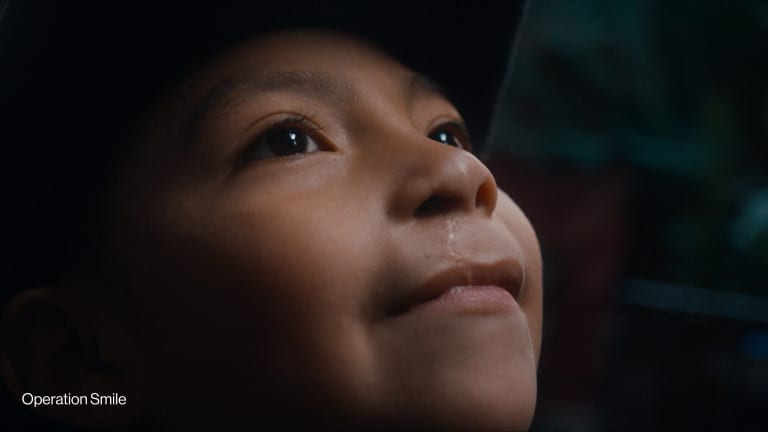Opinion: It's time to end neocolonialism in global surgery

The global surgical community stands at a crossroads. Throughout the summer of 2020, global protests against police brutality and systemic racism prompted widescale reflection on how various organizations and institutions, including global health and global surgery, uphold inequitable, neocolonialist systems.
Neocolonialism is the use of economic, political, cultural, or other pressures to control or influence other countries, especially former dependencies. For years, medical practitioners in both high-income and low- and middle-income countries have questioned whether the field of global surgery is going down a pathway of equity or if it’s becoming, as one recent paper wryly terms it, “the bold new face of colonialism.” The answer? Regardless of intention, it is both — and that must change.
Short-term surgical missions ultimately disempower the very communities they are created to help.
—Inequity manifests in many ways. When international conferences address global surgery, health workers from LMICs may be the topic of conversation, but they are rarely in the room where decisions are made. Often, it’s due to structural difficulties, including the prohibitive cost of travel and visa challenges. The COVID-19 pandemic has changed this dynamic markedly as virtual, accessible events increase, but whether this will become the new, more equitable normal remains to be seen.
But their absence can also be felt when it comes to research; the specific diseases and conditions that are researched — and who is conducting and publishing that research — continues to be defined by western stakeholders. While high-income country research groups and individuals have, in recent times, increasingly involved LMIC colleagues in research, they are often limited to collecting and providing data, which does not expand their research capacity.
From ‘missions’ to empowering locally
Another enduring legacy of inequity is the continuing model of the surgical “mission,” in which surgical providers, usually from high-income countries, fly in to provide surgical care to patients in LMICs.
On Dec. 10 at Devex World, some of the biggest names in development come together to chart the future of our industry. Full access to the day’s interactive program is exclusive to Devex Pro and Pro Funding members. Claim your ticket.
Generally, these missions are short, lasting for no more than one to four weeks, and they are especially popular for specialized surgical conditions such as cleft lip and palate. While the surgeons and medical providers who fund and join these surgical missions usually act out of altruism, short-term surgical missions ultimately disempower the very communities they are created to help.
Short-term missions often undermine the local providers and the local infrastructure. Visiting teams often requisition hospital resources, such as operating rooms and assistance staff, displacing the existing health care providers. Scheduled procedures may be postponed as all facilities are diverted to support the short-term mission.
Short-term missions also undermine the trust that patients have in their local systems. A qualitative study from Guatemala noted that many patients who would have otherwise sought care from local doctors went instead to mission doctors. Over time, this pattern causes dependence on foreign medical aid and decreased government investments in the country’s own health care system.
Most countries already have local providers, though they may lack the specialized skills, equipment, or infrastructure that they need. The resources spent on flying western surgeons, nurses, and anesthetists into a country could be better spent on investing in the training, education, and resources of those providers to strengthen their health systems long-term.
The negative impact of short-term missions is not limited to the providers. While long-term data for missions is often lacking, the limited data available suggests that surgical care provided by missions results in poorer outcomes for patients.
Investing in systems to support holistic care
Cleft care and many other surgical treatments often require more than a one-time operation, but short-term mission groups are not equipped to support the pre-surgical and post-surgical care that patients need. For example, when it comes to cleft lip and palate, nutrition is a common challenge for babies from birth, but it is essential that patients reach a healthy minimum weight for a safe surgery.
Is COVID-19 magnifying colonial attitudes in global health?
As countries around the world struggle to contain the coronavirus, inequalities brought about by existing imbalanced power structures are resurfacing, resulting in growing calls to decolonize global health.
With limited time, surgical missions cannot wait for patients to gain weight, and the cleft patient may have to wait months or years until the surgical mission returns — time that impacts their health, their speech development, and the well-being of their families. Missions also tend to prioritize less-complex surgical cases, leading to backlogs of complex cases.
In addition, short-term missions often lack mechanisms for patient follow-up, and when the visiting providers depart, the local providers are often left to handle the complications of a surgery they did not perform. A comparison of outcomes between cleft surgery provided at a referral center — a permanent hospital — vs. a mission site in Peru, for example, found that there was a greater risk of the cleft re-opening, hemorrhage, and fistula for patients who received surgery at the mission site.
Ensuring a sustainable exit strategy through partnership
Many organizations that have historically utilized the mission model of surgical care are increasing their emphasis on training, partnership, and coordination with local health providers. The end goal of global surgery, however, is to build independently functioning health- and surgical systems within all countries.
There must be an exit strategy for this model of care, a strategy that allows providers to take over the provision of all care, while re-positioning the “visiting” partner to support with resources and guidance where needed. Local surgical teams must be trained, educated, and supported as needed so that future generations can guarantee the continuation of programs within their own communities.
Equitable models of partnership do exist, and the impact of investment in local medical professionals is undeniable. Since its founding more than 20 years ago, Smile Train, the world’s largest NGO focused on cleft lip and palate, has partnered with local hospitals to strengthen health systems and empower local medical professionals to offer surgical services and on-going cleft care to children in their own communities.
Smile Train now works with more than 1,100 hospitals across 70-plus countries to provide education and training, funding, and resources through a scalable model that has created a strong network of local medical professionals who deliver safe year-round care.
Through these partnerships, including with professional organizations like the West African College of Surgeons, Smile Train is working to train and equip the next generation of cleft care providers. This model of direct empowerment is one of many examples of partnerships that are disrupting the neocolonialist dynamic within global surgery.
The legacy of colonialism, however, is not lightly cast aside. To ensure that patients, providers, and the coming generations have the foundational human right of good health that enables the full exercise of their economic, social, and political human rights, we cannot fail to meet this moment of reckoning.
Together, we must take concrete action against the injustices of the past that remain with us, and we must confront new injustices as they manifest. Together, in open dialogue, prioritizing the voices and leadership of those who must ultimately lead the health systems within their countries, we can set a new course for equity in global surgery.
Tune into the session to learn more: “Lessons from Global Surgery: Promoting Local Empowerment Through Partnerships” at Devex World 2020 on Dec. 10.

Search for articles
Most Read
- 1
- 2
- 3
- 4
- 5










